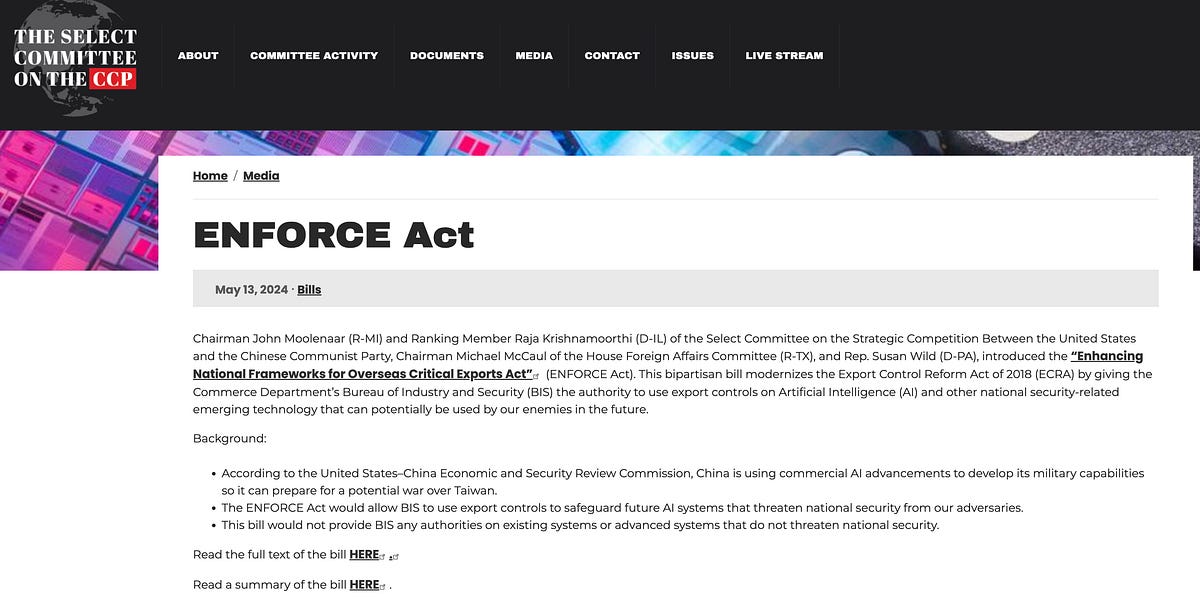The Congress legislation to export control AI models sparked panic among Chinese H1B visa holders in the U.S.

🌈 Abstract
The article discusses the potential impact of the Enforce Act, a U.S. Congress legislation that aims to impose export controls on certain AI systems, on Chinese H1B visa holders in the U.S.
🙋 Q&A
[01] The Enforce Act
1. What are the key provisions of the Enforce Act?
- The Enforce Act amends the 2018 Export Control Reform Act to authorize the U.S. Commerce Secretary to impose export controls on certain "AI systems" and restrict Americans from collaborating with foreign countries in developing these systems.
- The Act's "temporary definition" of "AI systems" includes proprietary or closed-source models and does not exclude open-source models like Llama 3.
- The Act allows the President to restrict "United States Persons" from participating in activities related to specific restricted AI systems and technologies deemed critical to U.S. national security.
2. How does the Enforce Act impact Chinese H1B visa holders in the U.S.?
- The Act's restrictions on "United States Persons" could affect U.S. citizens or permanent residents working on controlled AI-related projects at Chinese companies or their partners, forcing them to resign and leave China.
- Chinese employees working at U.S. companies, many of whom hold H1B visas and are AI tech talents, might be restricted under "deemed export" rules due to their nationality and ties to China, potentially barring them from working on large models or even broader AI fields.
- This has sparked panic among H1B visa holders in the Chinese-American community, who are concerned about the potential impact on their careers and are calling on lawmakers to express their opposition.
[02] Potential Impact on China's AI Ecosystem
1. How might the Enforce Act impact China's AI talent development in the short and long term?
- In the short term, the Act's restrictions on Americans working in Chinese AI companies might negatively impact China's AI talent development, as many U.S. citizens or permanent residents might have to resign or leave.
- However, in the long run, this might not be bad for China, as studies show that top AI researchers globally have low cross-border mobility and prefer to stay in their home countries. If the U.S. doesn't balance national security with talent attraction, it might force many Chinese AI talents in the U.S. to return to China or deter those considering a move to the U.S. from leaving China.
2. How are Chinese companies and policymakers responding to the potential impact of the Enforce Act?
- China has recently released a draft national standard on AI safety that allows providers to use open-source models like Llama 3 and fine-tune them to offer services, which was somewhat discouraged by a previous technical document.
- Some Chinese policy observers believe the Enforce Act's restrictions on Americans might not be bad for China in the long run, as it could force Chinese AI talents in the U.S. to return to China or deter those considering a move to the U.S. from leaving China.
Shared by Daniel Chen ·
© 2024 NewMotor Inc.